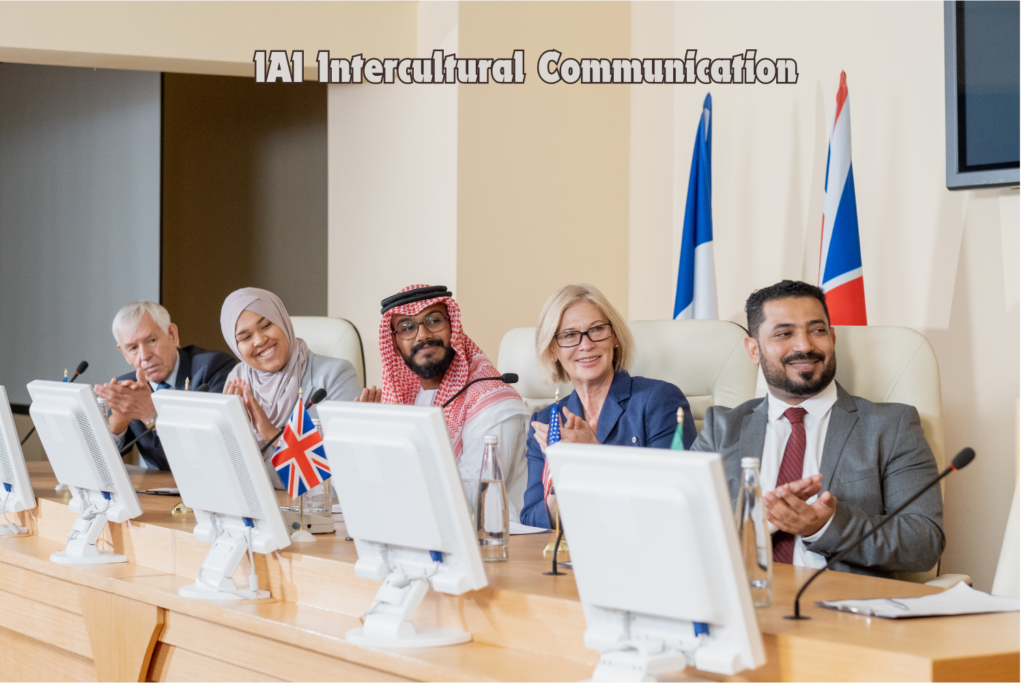In today’s interconnected world, effective communication across cultural boundaries is more important than ever. Intercultural communication, the process of exchanging meaningful messages between people from different cultures, plays a vital role in fostering mutual understanding, collaboration, and respect. The Intercultural Communication Institute (IAI) stands at the forefront of this field, offering resources, research, and training to enhance intercultural communication skills. In this blog post, we’ll explore the significance of intercultural communication, delve into IAI’s contributions, and provide practical tips for improving your intercultural communication skills. Additionally, we’ll address some frequently asked questions (FAQs) to further your understanding.
The Importance of Intercultural Communication
Intercultural communication is essential for a variety of reasons. It helps in:
- Building Relationships: Effective communication across cultures builds stronger personal and professional relationships by fostering trust and understanding.
- Enhancing Collaboration: In workplaces and global teams, intercultural communication enhances collaboration, productivity, and innovation.
- Promoting Inclusivity: It promotes inclusivity and respect for diversity, reducing misunderstandings and conflicts.
- Global Competence: In a globalized world, intercultural communication skills are crucial for success in international business, education, and diplomacy.
IAI’s Role in Intercultural Communication
The Intercultural Communication Institute (IAI) is a leading organization dedicated to the study and practice of intercultural communication. Here are some of the ways IAI contributes to this field:
1. Research and Publications
IAI conducts cutting-edge research and publishes scholarly articles, books, and reports on various aspects of intercultural communication. These resources provide valuable insights into the challenges and strategies for effective intercultural interactions.
2. Training and Workshops
IAI offers training programs and workshops designed to enhance intercultural communication skills. These sessions cover topics such as cultural awareness, conflict resolution, and effective communication strategies.
3. Consulting Services
IAI provides consulting services to organizations looking to improve their intercultural communication practices. These services include cultural assessments, customized training programs, and strategic planning.
4. Conferences and Events
IAI organizes conferences and events that bring together scholars, practitioners, and students to share knowledge and experiences. These gatherings foster a global community of individuals committed to advancing intercultural communication.
Practical Tips for Improving Intercultural Communication
Here are some practical tips to enhance your intercultural communication skills:
1. Develop Cultural Awareness
Understanding your own cultural background and biases is the first step towards effective intercultural communication. Reflect on how your culture influences your communication style and be open to learning about other cultures.
2. Learn About Other Cultures
Take the time to learn about the cultural norms, values, and communication styles of the people you interact with. This knowledge will help you navigate intercultural interactions more effectively.
3. Practice Active Listening
Active listening involves fully concentrating, understanding, responding, and remembering what is being said. This skill is crucial in intercultural communication as it shows respect and interest in the other person’s perspective.
4. Be Open-Minded and Flexible
Approach intercultural interactions with an open mind and a willingness to adapt. Be prepared to adjust your communication style and expectations based on the cultural context.
5. Seek Feedback
Ask for feedback from your intercultural communication partners to understand how your messages are being received and how you can improve. This demonstrates your commitment to effective communication and mutual understanding.
FAQs:
1. What is intercultural communication?
Intercultural communication is the process of exchanging meaningful messages between individuals from different cultural backgrounds. It involves understanding and bridging cultural differences to achieve effective communication.
2. Why is intercultural communication important?
Intercultural communication is important because it fosters mutual understanding, builds strong relationships, enhances collaboration, promotes inclusivity, and is essential for global competence in today’s interconnected world.
3. How does IAI support intercultural communication?
IAI supports intercultural communication through research and publications, training and workshops, consulting services, and organizing conferences and events. These efforts help individuals and organizations improve their intercultural communication skills and practices.
4. What are some common challenges in intercultural communication?
Common challenges in intercultural communication include language barriers, cultural misunderstandings, different communication styles, and ethnocentrism (the belief that one’s own culture is superior).
5. How can I improve my intercultural communication skills?
You can improve your intercultural communication skills by developing cultural awareness, learning about other cultures, practicing active listening, being open-minded and flexible, and seeking feedback from your intercultural communication partners.
Conclusion:
Intercultural communication is a vital skill in our increasingly globalized world. It enables us to connect with people from diverse backgrounds, build meaningful relationships, and collaborate effectively across cultural boundaries. The Intercultural Communication Institute (IAI) plays a crucial role in advancing this field through research, training, consulting, and community-building efforts. By developing cultural awareness, learning about other cultures, and practicing effective communication strategies, we can enhance our intercultural communication skills and contribute to a more inclusive and understanding world.

